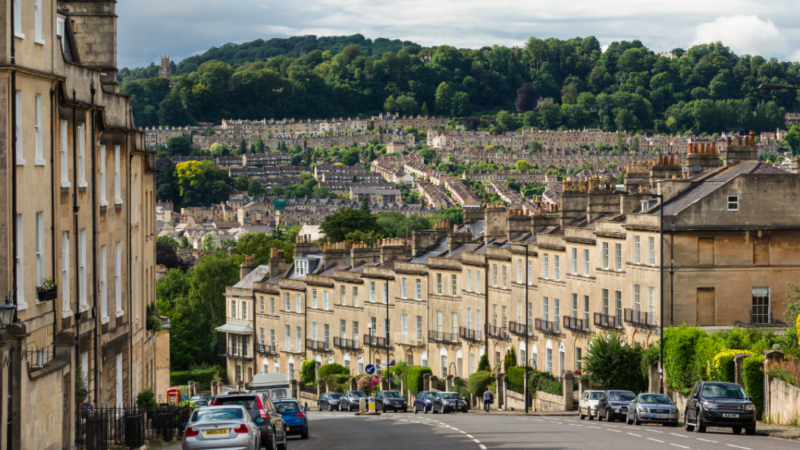Housing in Britain is in crisis. All the evidence shows that the government is utterly failing to respond properly.

Today is Housing Day, when those working in the social housing sector mark achievements and campaign for higher levels of housing investment — we’ve never needed it more.
Looming in the background this year is the start of the inquiry into the Grenfell Tower disaster.
Many in social housing have lobbied for the inquiry, which has a tight remit, to cover wider issues, such as the dwindling social housing stock, stagnant housing supply, and the lack of control tenants have over the management of their housing and estates.
Alongside the inquiry, a deepening housing crisis casts a shadow over the wok of social landlords. Many are struggling with cuts in housing investment since 2010, forced reductions in rents, and the impact of welfare on community wellbeing and their special needs tenants.
As the report from the National Audit Office (NAO) found last week, homelessness is also rising. The number of officially homeless households has climbed to almost 60,000 a year – a 48% increase since 2010.
Many of these homeless households with dependent children will wait for many years to be rehoused – sometimes in temporary accommodation, the use of which has risen 51% since 2010 to over 77,000 households. And more than 3,000 people each year will be sleeping rough.
The NAO said of the government’s performance:
”Homelessness in all its forms has significantly increased in recent years…Despite this, government has not evaluated the impact of its reforms on this issue, and there remain gaps in its approach.”
They continued:
It is difficult to understand why the Department (of Communities and Local Government) persisted with its light touch approach in the face of such a visibly growing problem. Its recent performance in reducing homelessness therefore cannot be considered value for money.”
At the same time, home ownership has been slipping out of reach of most young people. The median house price is now almost seven times median earnings.
This is especially so in London and the south-east where the ratio between house prices and earnings ranges from 9:1 to 30:1.
In spite of a range of government subsidies and deposit schemes, home ownership remains flat since house prices are way out or reach of the majority of would-be first time buyers.
Instead, many more households rent from private landlords. Yet private renting is often unstable, with soaring rents, hidden fees and eviction a constant worry.
And it sometimes means people living in indecent conditions – one third of private rented homes in England fail to meet the government’s Decent Homes Standard.
At the same time housing demand is growing as housing supply remains much lower historically. The number of households in England is set to grow by 24% to 28m over the next two decades.
The number of new homes required annually to meet this growth, and a backlog of housing needs, has been revised upwards by government to at least 270,000.
Building of affordable housing (including social housing, affordable rented housing and shared ownership by social landlords) is at a 25 year low. Social housing (at no more than 3,000 homes last year) has reached a level not seen since the years immediately after World War I.
Today, there are 1.5m fewer social homes than in 1979, as social housing has slumped from 31% of total homes to just 17% over the same timescale.
With the government u-turning on the public sector pay cap, perhaps it is no time to reverse the drastic cut in social housing investment seen in the Comprehensive Spending Review 2010, which fuelled the current housing crisis. Dedicated social housing staff, and the communities they support, deserve nothing less.
Kevin Gulliver is Director of Birmingham-based research charity the Human City Institute. He tweets here.




3 Responses to “The backdrop to #HousingDay is Grenfell, growing homelessness and a housing crisis”
Dulari-Leiylah Markelke
The extreme cost of tory rule.
Dave Roberts
Mr Gulliver.
I have tried to find out what it is you do and what your expertise is but mt investigations have run into the sand. It would seem that you have never had a proper job in your life and your organisations are fake.
The reason for the housing crisis is that there are too many people in the country and yet you are encouraging more to come. Mark Twain said ” Buy land, they’re not making it any more” and he was correct. You and your ilk live in a publicly subsidised never never land of perfect solution if only more money was spent on them. You sum why this site, like so many others is not taken seriously.
Will
Dave Roberts, you say there are too many people in the country. You may be right but the population of the whole world is rising at quite an alarming rate therefore this country needs to build more housing to accommodate. If the shortage continues then the prices stay very high which suits the landlords who ultimately run the show. I feel the problem is totally political and held at this level for the financial gains achieved. Living in an area where the percentage of second homes is large also makes me think about the unfairness of the whole situation.